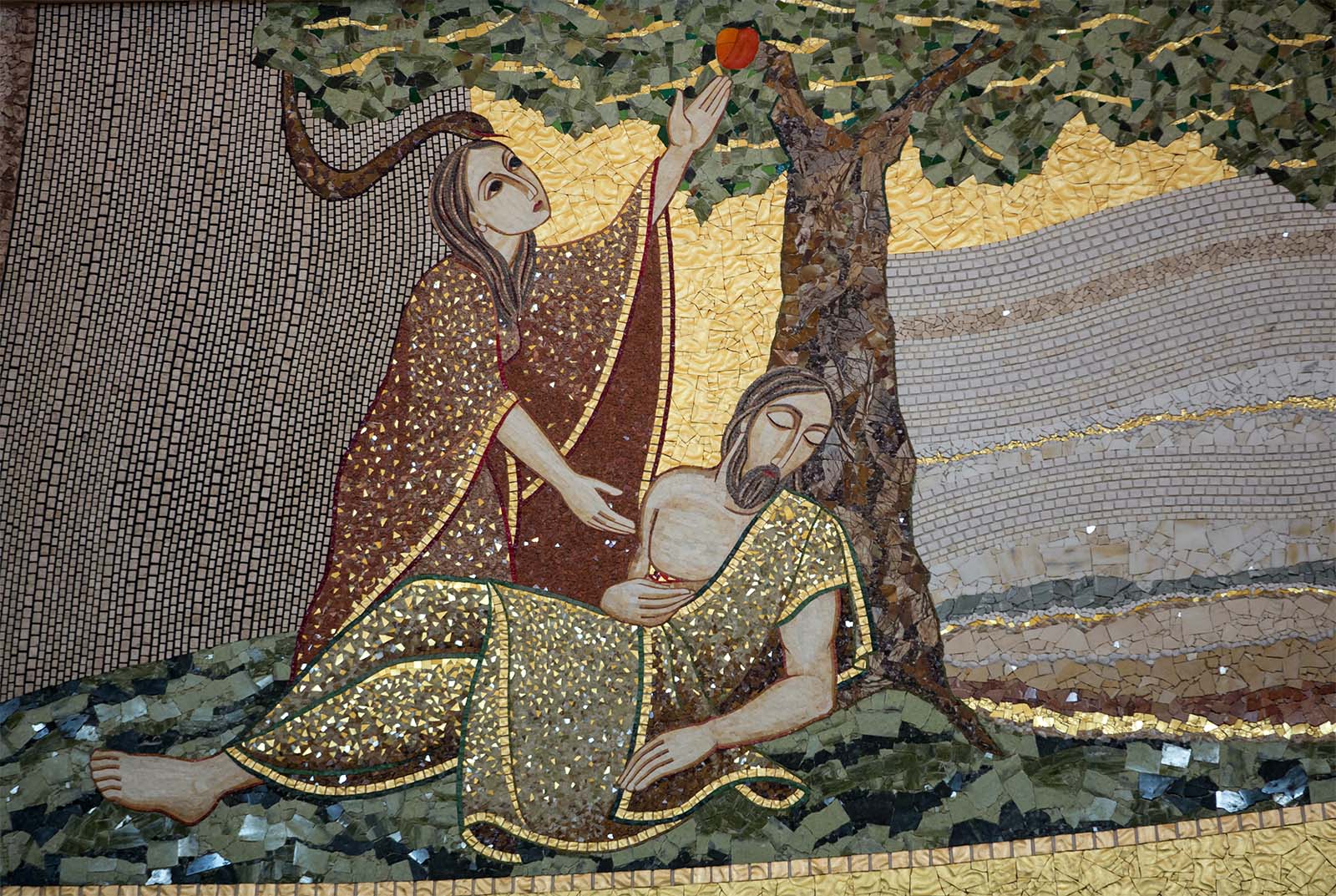A listener wrote in to The Cale Clarke Show to ask Cale about the concept of reincarnation. He said that he knows that the Catholic Church teaches that reincarnation does not exist, but he heard that it was in scripture and then later removed from canon at the Council of Nicaea. Is there any truth to this?
Cale responded by first saying that he has heard this same argument before in multiple contexts, the first of which refers to the typological saying that calls Jesus “The New Adam”. Some interpreted this to mean that Jesus is the reincarnation of Adam who has come to do the right thing whereas Adam chose to sin. So clearly, the Church would promulgate reincarnation if Jesus did it, right?
Wrong. That phrase, “The New Adam”, is typological, said Cale. It’s a form of reference or symbolism. Whereas Adam was put on this earth to stand as the beginning of our eternal salvation, he failed. He gave in to the desires of this world. Jesus took on flesh to come down to earth to fulfill the things that Adam did not. God remains the same and constant forever, so to say that Jesus is literally the reincarnation of Adam would be blasphemous. Adam is not God, but a creature of God. Jesus is God.
The other time where Cale heard this argument that the Church taught reincarnation was, strangely enough, through the autobiographical book Out on a Limb, by actress Shirley MacLaine. MacLaine subscribed to some abnormal, new-age world and religious views, including the belief that the Church originally taught reincarnation. She said, “The theory of reincarnation is recorded in the Bible, but the proper interpretations were struck from the Bible during an ecumenical council meeting of the Catholic Church in Constantinople sometime around AD 553, which was called the Council of Nicaea.”
As Cale pointed out, MacLaine was conflating several different things. First of all, there was no Council of Nicaea in 553 A.D. There was the First Council of Nicaea in 325 A.D. and the Second Council of Nicaea in 787 A.D., but nothing in between. Second of all, these two councils did not take place in Constantinople. They took place in, Nicaea, the Byzantine city across the Bosporus strait from Constantinople. Third of all, in neither of those councils did the Church ever discuss the idea of reincarnation. And fourth of all, there was a meeting in 553 AD, but that was the Second Ecumenical Council of Constantinople and they didn’t discuss reincarnation at that one either. By all accounts, Ms. MacLaine is incorrect.
So where did MacLaine get this idea? And why did she spread it? “Well, it’s, in all likelihood, something she got from another book that was quite popular in the 1970s; a book called Reincarnation in Christianity. And that was written by somebody named Geddes MacGregor,” said Cale. MacGregor said that Origen, an influential, early Christian theologian, actually believed in reincarnation. Cale said MacGregor has no proof of this.
In reality, Origen believed in the pre-existence of souls in heaven before they are attached to a body at the moment of conception. He did not believe in reincarnation, and he actually condemned it. Furthermore, at the very council in 553 that MacLaine was seemingly referencing in her book, the Church condemned the teaching of pre-existent souls.
In conclusion, the Church does not teach reincarnation, nor has it ever taught reincarnation. Related ideas like superstition, karma, predestination, and pre-existent souls are also false. Reincarnation was never a teaching present in the Bible, and it was therefore never struck from the Bible. None of the first seven ecumenical councils even mention reincarnation. Once we die, it is believed that our souls will be separated from our bodies. While our souls travel to the afterlife, our bodies will decay.
Tune in to The Cale Clarke Show weekdays at 5pm CT


